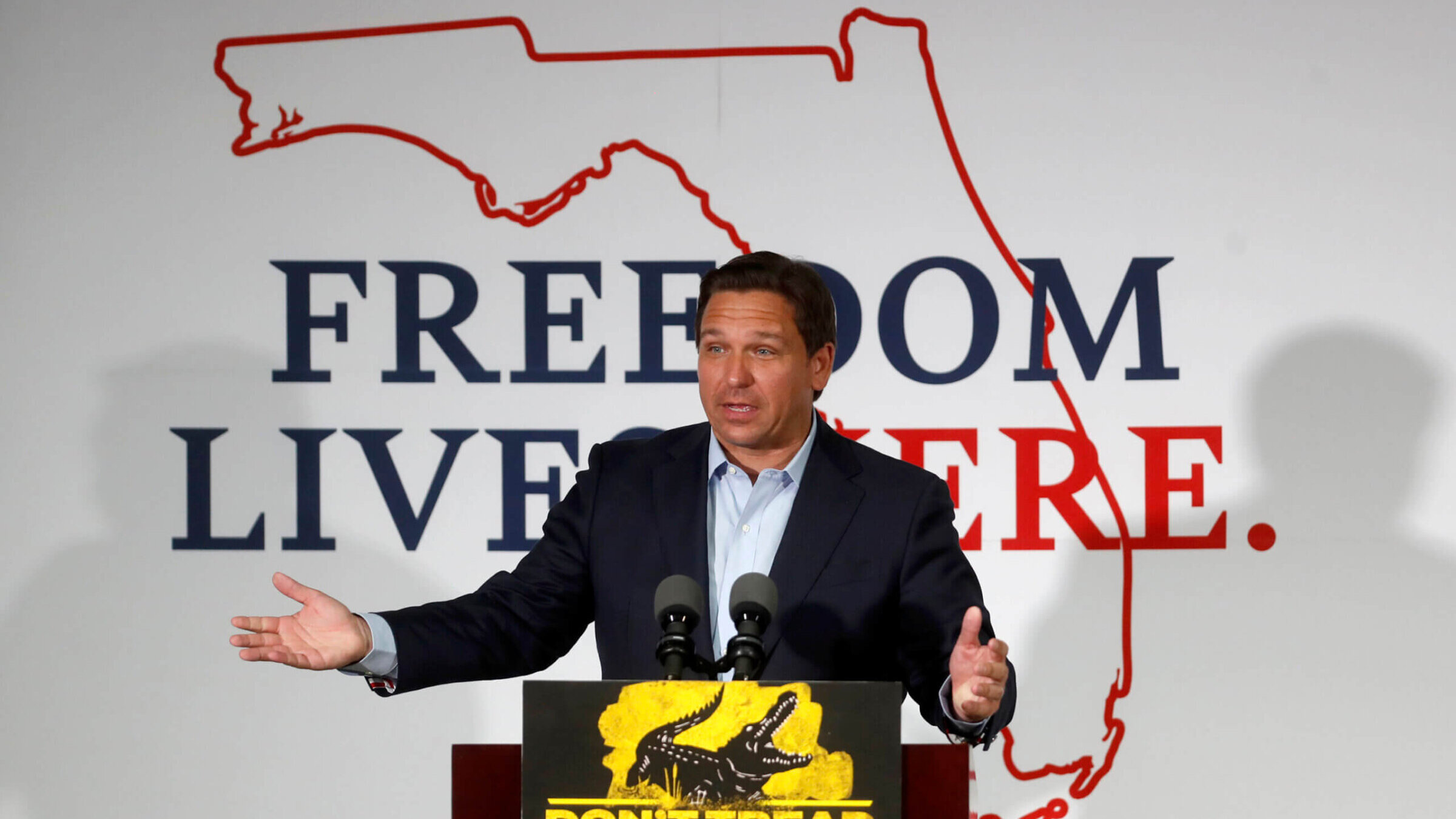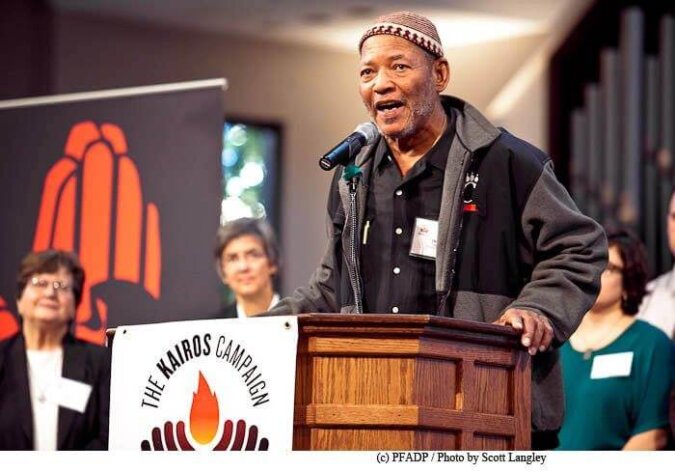Traveling to Florida while wearing a skullcap? You could end up on death row
NAACP’s travel advisory warning for Florida after DeSantis’ assault on DEI programs has basis in historic racial injustice

Republican Florida Gov. Ron DeSantis gives a campaign speech at the SCC Community Hall on Nov. 6, 2022 in Sun City Center, Florida. DeSantis signed legislation defunding diversity programs at the state’s public colleges and universities, prompting the NAACP to issue a travel advisory. Photo by Octavio Jones/Getty Images
If the NAACP’s travel advisory warning African Americans about the dangers of visiting Florida under Gov. Ron DeSantis’ anti-diversity rollbacks sounds like an overdramatization, it isn’t. I’ve been aware of the risks of people of color traveling there for nearly 50 years.
Back then, the penalty was death.
Or at least a death sentence. That’s what my Chicago next-door neighbor Delbert Tibbs found himself facing when an all-white jury convicted him of murder and rape after hitchhiking through the state in 1974.
His goal had been to become a great writer, in the peripatetic vein of Jack Kerouac. But he hadn’t endured the suffering necessary to achieving creative maturity, as artist friends like my mother would remind him. So around 1972, Tibbs, then 33, chucked his job as a taxi company claims adjuster (the guy who comes out to tell you the crash that totaled your car wasn’t the cabdriver’s fault), sublet his hippie pad and hit the road.
The next we heard from him was in a letter from a Florida prison.
“I’m on death row,” he wrote.
That’s a little more dramatic than the warnings the NAACP just put out about Florida travel (following a similar one about Missouri in 2017), cautioning that the Sunshine State is “openly hostile toward African Americans, people of color and LGBTQ+ individuals.” For Tibbs, his encounter with state authorities initially wasn’t hostile at all — which should further alert current visitors against letting their guard down.
Tibbs had been hitchhiking in Central Florida when cops stopped him, looking for a man driving a green truck who was suspected of killing a man and raping his female companion. Those authorities were quickly satisfied Tibbs wasn’t the suspect, noting he didn’t fit the description beyond being Black (and of a different complexion), he was not driving at all, let alone a green truck and was 220 miles away from the scene of the crime. They released him, but not before taking mugshots.
Later, the rape victim visually identified him from those mugshots and Tibbs was apprehended again, in Mississippi. Still assuming there was nothing to worry about, he waived extradition back to Florida.
The trial, verdict and sentence were quick: Guilty. Death by electric chair.

Fortunately, Tibbs wrote to a lot more people than just us. A national defense committee formed as questions mounted about the case. The Florida Supreme Court reversed the decision and ordered a new trial, with Tibbs released on bond in 1977. Now mired in double-jeopardy appeals, the case reached the U.S. Supreme Court in 1982. The state then dropped all charges, with James S. Long, the original prosecutor, telling CBS’ 60 Minutes he would now gladly testify for the defense, saying the case had been “tainted from the beginning and the investigators knew it.”
Tibbs’ exoneration turned him into a poster child for a growing wrongful convictions movement and led him to write several notable books of poetry (the first of which I published for him), as well as inspiring a TV movie with Danny Glover and Brian Dennehy. He received no compensation for wrongful incarceration from the state of Florida, and Pete Seeger volunteered to do a benefit. A shoestring operation, we couldn’t afford a hotel room for Seeger, who stayed at my apartment.
Tibbs and I became best friends until I left Chicago in the mid-1980s. He always wore a skullcap, which I didn’t know at the time was a kufi. He didn’t either, and when I asked, he told me it was a yarmulke. We kept in sporadic contact after I left, rekindled via social media, until his passing in 2013.
So, is it a stretch to connect a case from half a century ago to the NAACP’s political disagreements with DeSantis today?
Any politically astute Black person, or Jew for that matter, will quickly tell you that laws regulating what you can say and teach about race and religion aren’t just rhetorical flourishes designed to ignite an aggrieved white voting populace. DeSantis’ 2022 “Stop W.O.K.E. Act, which the NAACP deplores, bans teaching about diversity and oppression. That would presumably include the Holocaust — history’s textbook example of horrific racist oppression — despite a 1994 Florida law that mandates all school districts include the Holocaust in their lesson plans.
The Stop W.O.K.E. Act also silences discussions of more recent travesties of justice that happened right in the Sunshine State. That includes the story of my friend Delbert Tibbs and his ill-fated travels there — though heaven forbid anyone in Florida dare remember or talk about it.






















